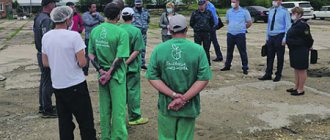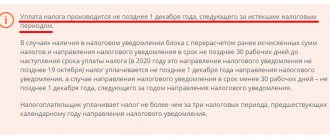ST 228.1 of the Criminal Code of the Russian Federation . Illegal production, sale or shipment of narcotic drugs, psychotropic substances or their analogues, as well as illegal sale or shipment of plants containing narcotic drugs or psychotropic substances, or their parts containing narcotic drugs or psychotropic substances
1. Illegal production, sale or shipment of narcotic drugs, psychotropic substances or their analogues, as well as illegal sale or shipment of plants containing narcotic drugs or psychotropic substances, or their parts containing narcotic drugs or psychotropic substances, -
shall be punishable by imprisonment for a term of four to eight years, with or without restriction of freedom for a term of up to one year.
2. Sale of narcotic drugs, psychotropic substances or their analogues, committed:
a) in a pre-trial detention center, correctional institution, administrative building, administrative structure, educational organization, at sports facilities, railway, air, sea, inland water transport or subway, on the territory of a military unit, in public transport or premises used for entertainment or leisure;
b) using the media or electronic or information and telecommunication networks (including the Internet), -
shall be punishable by imprisonment for a term of five to twelve years with a fine in the amount of up to five hundred thousand rubles or in the amount of the wages or other income of the convicted person for a period of up to three years, or without it, and with or without restriction of freedom for a term of up to one year.
3. Acts provided for in parts one or two of this article, committed:
a) by a group of persons by prior conspiracy;
b) in a significant amount, -
shall be punishable by imprisonment for a term of eight to fifteen years with or without a fine in the amount of up to five hundred thousand rubles or in the amount of the wages or other income of the convicted person for a period of up to three years and with or without restriction of freedom for a term of up to two years.
4. Acts provided for in parts one, two or three of this article, committed:
a) an organized group;
b) by a person using his official position;
c) by a person who has reached the age of eighteen, in relation to a minor;
d) on a large scale, -
shall be punishable by imprisonment for a term of ten to twenty years, with or without deprivation of the right to hold certain positions or engage in certain activities for a period of up to twenty years, and with a fine in the amount of up to one million rubles or in the amount of the wages or other income of the convicted person for a period of up to five years or without it.
5. Acts provided for in parts one, two, three or four of this article, committed on an especially large scale, -
shall be punishable by imprisonment for a term of fifteen to twenty years with deprivation of the right to hold certain positions or engage in certain activities for a period of up to twenty years or without it and with a fine in the amount of up to one million rubles or in the amount of the wages or other income of the convicted person for a period of up to five years or without it or life imprisonment.
Commentary to Art. 228.1 of the Criminal Code
1. The subject of the crime completely coincides with the subject in Article 228 of the Criminal Code of Russia.
2. The objective side is characterized by the commission of at least one of the actions specified in the disposition of the article. The concepts of illegal production, sales, and transfer are contained in Resolution of the Plenum of the Supreme Court of the Russian Federation dated June 15, 2006 No. 14.
Liability arises regardless of the size of narcotic drugs, psychotropic substances and their analogues, plants containing narcotic drugs or psychotropic substances, or parts of plants.
3. The crime is considered completed from the moment of committing one of the actions specified in the law.
4. The place and method of committing a crime are mandatory signs of an objective party to qualify the act under Part 2 of Art. 228.1 CC.
5. The subjective side of the crime is characterized by direct intent. Intent to sell may be evidenced by: acquisition, production, processing, storage, transportation of funds and substances by a person who does not use these substances; quantity (volume); placement in packaging convenient for sale; existence of agreements with consumers, etc. (see paragraph 13 of the Resolution of the Plenum of the Supreme Court of the Russian Federation of June 15, 2006 No. 14).
Are amendments needed to the current legislation?
In this context, bots have almost unlimited functionality. The only problem is that the bot cannot yet replace a living person. If we are even talking about such simple work as technical support. In this context, artificial intelligence would be much more convenient and simpler. But so far, the development of neural networks is not yet so promising, and there is no talk of a full-fledged artificial intelligence system.
How is sales and production proven?
Subsequently, company representatives do all this. At the bank office, one of the employees changes the phone number to access the account. After which he simply withdraws the “control amount” of money to his own accounts and disappears. The police cannot always figure out even such a simple and obvious matter. Especially if the victims are not very active, and the scammer did everything right.
You might be interested ==> Will the state cover mortgages for the poor?
Transfer is formed by the actions of a person aimed at moving narcotic drugs, psychotropic substances, their analogues, narcotic plants or their parts to the addressee (for example, in mail, parcels, luggage, as well as with a messenger in the absence of the latter’s awareness of the actual object being moved or his collusion with sender); movement actions are carried out without the direct participation of the sender (clause 17 of the said Resolution).
1. Illegal production, sale or shipment of narcotic drugs, psychotropic substances or their analogues, as well as illegal sale or shipment of plants containing narcotic drugs or psychotropic substances, or their parts containing narcotic drugs or psychotropic substances, -
The sale of drugs and substances, narcotic plants or their parts specified in the law should be understood as any methods of their paid or gratuitous transfer to other persons (sale, donation, exchange, payment of debt, lending, etc.), as well as other methods of sale. Intent to sell these products and substances can be evidenced by their acquisition, production, processing, storage, transportation by a person who does not use them, their quantity (volume), placement in packaging convenient for sale, or the presence of an appropriate agreement with consumers, etc. (Clause 13 of the Resolution of the Plenum of the Supreme Court of the Russian Federation “On judicial practice in cases of crimes related to narcotic drugs, psychotropic, potent and toxic substances”).
Based on statistical data, it naturally follows that, according to Art. 228 of the Criminal Code of the Russian Federation, which provides for liability for storage, transportation, etc. without the purpose of sale, there is a high probability, more than 60%, of a punishment not related to imprisonment.
The table shows that the higher the qualification, the more severe the punishment associated with imprisonment. According to the most common composition in practice - Part 4 of Art. 228.1 of the Criminal Code of the Russian Federation (sale on a large scale, 4069 people were convicted in 2021, under Part 1, for example, 970), there is a high probability of imposing a sentence in the form of actual imprisonment for a term of 5 to 10 years - 64%.
From year to year, both at consultations and site visitors, they ask the question about the possibility of imposing a punishment that is not related to actual imprisonment under Articles 228, 228.1 of the Criminal Code of the Russian Federation or the term that the court may assign when passing a sentence.
You might be interested ==> Insurance premiums for citizens of Uzbekistan under a patent
Hello. Discussing amendments before they are adopted is not a rewarding task. The fact is that everything can change or they simply won’t accept it. It is better to ask whether the amendments will make any sense to you personally when they come into force.
Good afternoon. As practice shows, all amendments made to the articles of the Criminal Code of the Russian Federation providing for criminal liability for crimes related to the illicit trafficking of narcotic drugs and psychotropic substances were aimed exclusively at tightening liability. And this is true for those involved in sales. In China, for example, people are publicly shot for this. Currently, any amendments to Art. 228.1 of the Criminal Code of the Russian Federation there is no information.
A person who has committed a crime under this article, who voluntarily surrendered narcotic drugs, psychotropic substances or their analogues, plants containing narcotic drugs or psychotropic substances, or parts thereof containing narcotic drugs or psychotropic substances, and who actively contributed to the detection or suppression of crimes related to illegal turnover of the specified means, substances or their analogues, as well as with the illegal acquisition, storage, transportation of such plants or their parts containing narcotic drugs or psychotropic substances, the exposure of the persons who committed them, the discovery of property obtained by criminal means, is exempt from criminal liability for this crime.
Second commentary to Art. 228.1 of the Criminal Code of the Russian Federation
This provision establishes liability for illegal actions related to the sale of narcotic drugs, psychotropic substances or their analogues, and representing links in the chain of illicit trafficking of these drugs and substances.
The production of narcotic drugs, psychotropic substances and their analogues means actions aimed at the serial production of these drugs or substances from chemicals or other substances and (or) plants (clause 12 of the resolution).
Illegal sale of narcotic drugs, psychotropic substances or their analogues, as well as plants (their parts) containing narcotic drugs or psychotropic substances, means any methods of their paid or gratuitous transfer to other persons (sale, donation, exchange, payment of debt, loan, etc.). d.) (clause 13 of the resolution), as well as other methods of distribution, for example by injecting another person.
The sale of other drugs and substances under the guise of narcotic drugs or psychotropic substances in order to seize the money or property of defrauded citizens should be qualified as fraud, and the actions of buyers with a large amount of drugs or substances passed off as narcotic or psychotropic drugs should be classified as an attempt at their illegal acquisition (p. 16 of the resolution).
Illegal shipment should be understood as the movement of narcotic drugs or psychotropic substances in the form of postal, luggage items, by courier or by other means without the personal presence of the sender (clause 17 of the resolution).
The crime is considered completed from the moment any of the considered actions are committed (clause 13.1 of the resolution). If a person, in order to carry out the intent to illegally sell, illegally acquires, stores, transports, manufactures, processes narcotic drugs, psychotropic substances or their analogues, as well as plants (parts thereof) containing narcotic drugs or psychotropic substances, thereby commits actions aimed at their subsequent sale and forming part of the objective side of the sale, but due to circumstances beyond his control does not transfer the specified means, substances, plants to the purchaser, then such a person bears criminal liability for attempted illegal sale of these means, substances, plants (clause 13.2 of the resolution) .
The subjective side is characterized by direct intent. Responsibility begins at age 16.
Qualified types of crime (Part 2) are characterized by its commission:
a) in a pre-trial detention center, correctional institution, administrative building, administrative structure, educational organization, at sports facilities, railway, air, sea, inland water transport or subway, on the territory of a military unit, in public transport or premises used for entertainment or leisure;
b) using the media or electronic or information and telecommunication networks (including the Internet).
1. Particularly qualified types of this crime are characterized by its commission:
— part 3:
a) by a group of persons by prior conspiracy (see Part 2 of Article 35 of the Criminal Code); b) in a significant amount (see commentary to Article 228 of the Criminal Code);
— part 4:
a) an organized group (see Part 3 of Article 35 of the Criminal Code);
b) by a person using his official position (see commentary to paragraph “c” of Part 2 of Article 127.1 of the Criminal Code);
c) by a person who has reached the age of 18 in relation to a minor (see commentary to Article 134 of the Criminal Code);
d) on a large scale (see commentary to Article 228 of the Criminal Code);
— part 5:
on an especially large scale (see commentary to Article 228 of the Criminal Code).
2. Significant, large and especially large amounts of narcotic drugs, psychotropic substances or their analogues, as well as plants (their parts) containing narcotic drugs or psychotropic substances, are defined in the same way as in relation to Art. 228 CC.
How to reform 228 of the Criminal Code of the Russian Federation:
- Change the table of sizes from which criminal liability begins and from which a party is considered large. The suspect's possession of a single dose of drugs should not be considered either large or especially large. (For example, a large amount of amphetamine, which begins with increased criminal liability, starts with one gram. At the same time, it is impossible to purchase amphetamine drugs less than one gram in illegal circulation).
- Decriminalize drugs whose social danger has not been proven or is low (natural derivatives of cannabinol and psilocybin).
- Strengthen control by supervisory authorities over criminal cases in which the weight of the seized drugs was borderline in terms of the classification of the crime.
Amendments to the Criminal Code of the Russian Federation for 2021, latest 228
causing major damage to the state or involving the extraction of large-scale income; the dangers of these crimes for society. Accordingly, it is necessary to more actively apply mechanisms of legal incentives to such persons to give up drug use in order to timely return drug users to a normal lifestyle.
Analysis of Article 228 of the Criminal Code of the Russian Federation with the latest changes for 2020
Let's touch on the issue of other changes. Since the law carries a single draft amendment, it is necessary to touch upon the changes in Article 398, which relate to references to Article 228. Now in this article, the words have also been replaced, where now to add to the first part, the second part of Article 228.
27 Apr 2021 semeiadvo 1390
Share this post
- Related Posts
- Law on Labor Veterans as amended for 2021
- The common-law wife has roads in front of the bank, can they describe my property?
- Fine for killing a moose without a license 2021
- Monthly Child Benefit under 18 Years of Age in the Moscow Region in 2021
Changes in drug legislation Article 228 and 228
- Presidential elections in March 2021 - this event may be an opportunity for release from punishment and for its mitigation. In particular, such a point is present in Ksenia Sobchak’s election program in the block of judicial and legal reforms. In addition, in May 2000, exactly two months after the election of Vladimir Putin as president, the largest amnesty in Russian history was announced, timed to coincide with the 55th anniversary of Victory in the Great Patriotic War.
- Also, one of the prerequisites is a proposal from the Commissioner for Human Rights in the Kaluga Region, Yuri Zelnikov, to release some groups of prisoners, which V.V. Putin considered possible for consideration.
- In 2021, two draft resolutions were submitted to the Duma: the first - from the Russian Ministry of Internal Affairs on the release of certain groups of prisoners, the second - from LDPR deputies, providing for an amnesty for those convicted with “light” articles and dedicated to the 100th anniversary of the October Revolution.
- The most common and significant factor for the event is the overcrowding of prisons; Partial relief from serving a sentence will help to “unload” them a little.
Will there be an amnesty in 2021?
By December 1, the government, together with regional executive authorities, is instructed to ensure the creation of specialized rehabilitation centers for minor drug addicts, as well as to develop and implement a program for comprehensive rehabilitation and resocialization of this category of citizens.
The Council decided to consider bills in the first reading at meetings of the State Duma on Fridays in accordance with Part 7 of Article 118 of the Rules of the State Duma at a fixed time (17 hours 30 minutes). The Council made a decision at a meeting of the State Duma on March 10, 2021, draft federal law N1015271-6 “On amendments to the Law of the Russian Federation “On the Protection of Consumer Rights” in terms of establishing additional consumer guarantees” (first reading) Changes in 2021 Article 228 Part 2 in part one of Article 228, the words “part one of Article 228,” shall be replaced with the words “parts one and two of Article 228,”; a) in paragraph two of part two, replace the words “from three to ten years” with the words “from two to five years”; b) in paragraph two of part three, replace the words “from ten to fifteen years” with the words “from five to fifteen years.”
— Grant the court the right to defer serving the sentence for those convicted under Part 2 of Article 228 of the Criminal Code of the Russian Federation to real imprisonment, who are recognized as drug addicts and have expressed a desire to undergo medical rehabilitation. That is, the bill proposes to provide those convicted under Part 2 of Article 228 of the Criminal Code of the Russian Federation with the opportunity to receive treatment instead of being sent to prison. I will add that the bill does not provide for mitigation of punishment for drug sales, therefore, amendments to Article 228.1 of the Criminal Code of the Russian Federation are not expected in 2021.
Lawyer Kudryashov Konstantin
According to Art. 228 of the Criminal Code of the Russian Federation, punishment is possible both for the acquisition of drugs for compensation (for money or services) and for receiving drugs for free. The exception is their purchase only as prescribed by a doctor, which must be confirmed by a prescription, medical history and other medical documentation.
The subject of a crime under Art. 228, part 3 is a sane person who has reached the age of 16. The characteristic of the subjective side is guilt in the form of the presence of direct intent to commit the actions listed in the article. The offender is aware of the illegality of his actions and has the desire to commit them.







